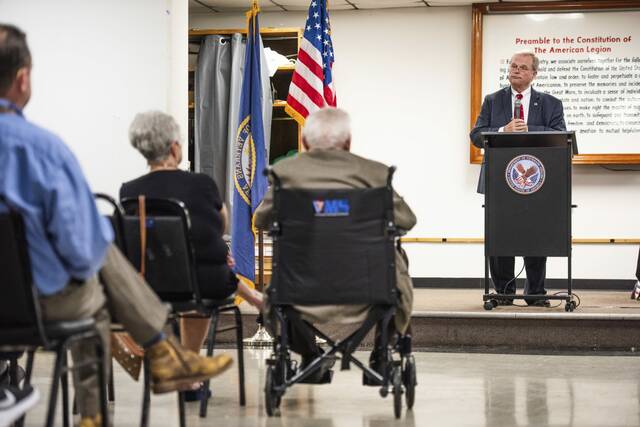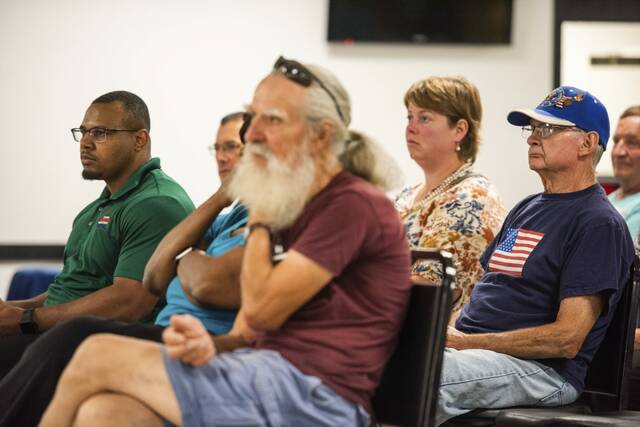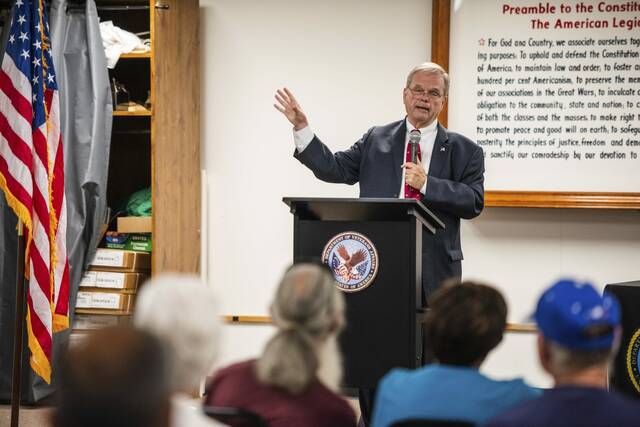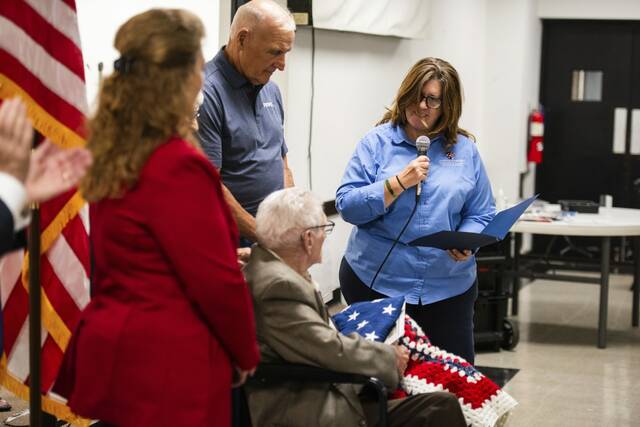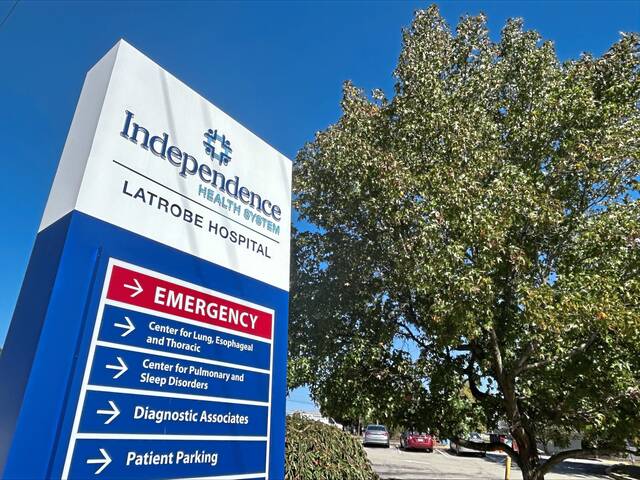More than 200 federal workers providing or supporting medical care for Pittsburgh-area veterans have left their jobs this year as the Trump administration pressures agencies to slim down.
By its own count, the Veterans Affairs Pittsburgh Healthcare System has lost 238 employees since January, with another 87 set to leave by the end of the year.
Most of the workers who departed were in nonclinical roles.
“It was pretty clear from the outset we’re not trying to decrease the people we have to take care of veterans,” Donald Koenig, director of the Pittsburgh VA, told TribLive in an exclusive interview.
Another 151 workers have or will soon join the Pittsburgh VA, partly offsetting the exodus.
All told, the system’s workforce is slated to shrink about 3% this year.
“It’s very small and has not impacted our ability to take care of veterans,” Koenig said.
The Department of Veterans Affairs as a whole is on pace to lose nearly 30,000 employees through ordinary attrition, early retirement, deferred resignation and other means.
That’s far less than the 80,000 jobs cuts once threatened by Department of Veterans Affairs Secretary Doug Collins and rescinded earlier this month.
Still, some patients are rattled, like Air Force veteran Winford Love.
“I keep hearing people say, ‘the VA wants you to die or give up,’” Love, 80, of Bridgeville said at a VA-sponsored town hall in Washington. “Hopefully, that’s not the case.”
The layoff plans also raised concern among the Pittsburgh system’s workforce.
Nearly 1,000 workers asked to “leave early,” according to Koenig, though most were told no because they provide patient care.
Another sign of rampant uncertainty was the crush of inquiries at a recent telephone question-and-answer session for employees.
“Normally, when we do an employee town hall, 200 folks will call in,” Koenig said. “First time we did one of these impromptu after all of this news hit, we had 1,200 people call in.”
His response to worried workers: “The closer you are to taking care of veterans, I swear, the more secure your job is. … all of this (reorganization) and everything is probably going to happen at these intermediate management levels, at headquarters, that sort of stuff.”
While nearly all doctors, nurses and other clinical staff have remained in place, it has been a slightly different story for support staff.
For instance, van drivers who take veterans to and from health care appointments were more willing to jump ship than the Pittsburgh VA anticipated.
The shortage of drivers has forced the system to prioritize the veterans it is legally required to shuttle.
Koenig also acknowledged as plausible reports that some medical professionals are taking on a greater burden of administrative work as the support staff around them shrinks.
The top-down order to shed staff is part of a wider campaign to “improve operational efficiency and service to veterans,” as a recent release from the Department of Veterans Affairs put it.
To that end, Koenig said the Pittsburgh VA has been overbooking when it’s more likely some patients will miss their appointments, like during bad weather.
“If you know it’s going to be a rainy and you have 10 appointment slots, book 12,” Koenig said. “Every once in a blue moon, all 12 will show up and you’ll have to squeeze them in. … But it will help a few more veterans get in to be seen.”
Advocates say it will take time for the full effects of staffing reductions and the attempted cultural overhaul at the Department of Veterans Affairs to become clear.
Sandy Young, 78, of Washington, Pa., has yet to notice a difference while receiving care — or hear any complaints from the members of the Marine Corps League detachment she belongs to.
“Everything is just as good as it was before,” she said.


